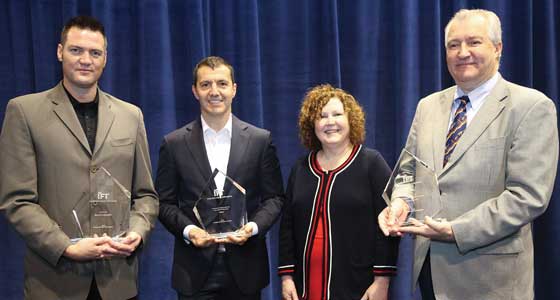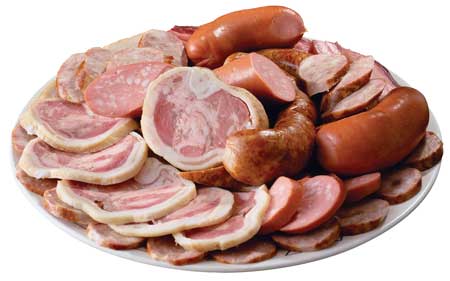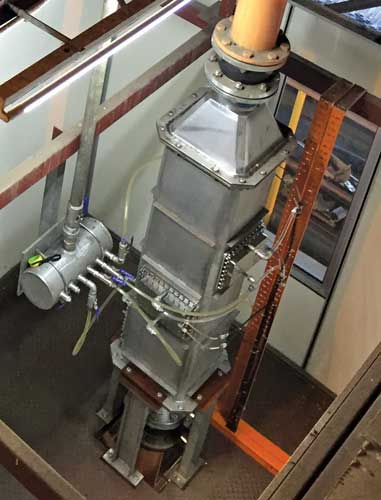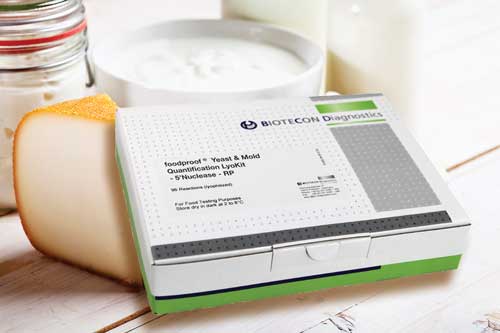Winning Innovations Reflect Today’s Food Trends
Three companies won the 2016 Food Expo Innovation Award for their advances in natural meat curing, sonic-assisted oil recovery, and rapid yeast and mold testing.

At a special presentation at IFT16: Where Science Feeds Innovation, IFT Past President Mary Ellen Camire announced and presented three companies—Bavaria Corporation, CSIRO, and Weber Scientific—with the 2016 IFT Food Expo Innovation Award. The winning entries offer inventive, yet practical solutions to today’s food issues and trends of clean label, sustainability, and food safety.
“Now in its 10th year, the Food Expo Innovation Awards program is a showcase for amazing advancements in our profession,” said Camire. “Exclusive to companies exhibiting at the IFT16 Food Expo, these awards honor outstanding innovation in products, ingredients, technologies, instrumentation, equipment, and services that were commercially introduced since January of 2015.”
A panel of eight jurors from industry, academia, and government with broad expertise in research & product development, processing & packaging technology, and food safety selected the three companies and their innovations from 46 qualified entries. Judging criteria included degree of innovation, technical advancement, benefits to food manufacturers and consumers, and scientific merit.
 Natural Meat Curing
Natural Meat Curing
Bavaria Corporation captured the 2016 IFT Food Expo Innovation Award for its Bafos Veg natural ingredient system, which eliminates chemical nitrates in naturally cured meat products. The clean label product works by utilizing the natural occurring nitrates in chard, spinach, and acerola. It aids in retaining red and pink color in cured meats. Acerola is a natural antioxidant that helps to improve shelf life and color retention.
The product is both USDA and FDA accepted and does not contribute flavor. It can be labeled as “vegetable powder” and “cherry powder” in the U.S. Bafos Veg can be used as a direct replacement for celery powder, which is declared an allergen and must be labeled as such in the EU.
Compared to sodium nitrite in a trial application, Bafos Veg showed no significant difference in total microflora during the 84-day shelf life period. Another study in a ham application showed that Bafos Veg yielded good pink color, plump and firm texture, and a smoky and salty flavor.
A juror noted the product “provides a clean label solution for nitrates in meat,” while another juror stated that it is a “great replacement for nitrite in meat.”
 Palm Oil Recovery
Palm Oil Recovery
CSIRO won the award for its megasonics technology for enhanced oil recovery. CSIRO discovered that sound waves in the megasonic range can recover oil lost in fibrous plant material, which led to a multi-stakeholder collaboration among Malaysian palm oil mill Tai Tak, IHMS consultants, palm oil industry supplier Boilermech, and German megasonic transducer manufacturer Sonosys to establish the world’s first commercial megasonic application in the food industry. The patented megasonic reactors being commercialized in the palm oil industry utilize high frequency sound pressure waves to coalesce emulsified oil droplets and separate them from palm fruit particles. Megasonics can recover 1 to 2 liters of oil per kilogram of fresh fruit, currently lost in effluent. For an average size mill, this oil recovery rate amounts to about $500,000 annually.
The first commercial megasonics unit processes about 45 tons of fresh fruit bunch per hour. Palm fruit paste released from the screw press passes through the megasonic reactor, which predisposes the paste for enhanced skimming in a vertical clarification tank. The megasonic transducer components (designed and manufactured by Sonosys) remain in indirect contact with the palm oil stream by means of acoustically designed transmission plates. The unit requires low energy consumption—about 0.2 kWh per ton of processed pressed material or 0.08 kWh per additional kilogram of oil recovered.
Megasonics technology may also offer benefits to other oil-bearing materials, such as olive, coconut, and seed.
A juror noted that megasonics “represents an important advance in sustainable palm oil production. I think application of sound wave technology may well extend beyond palm oil to solvent-free extraction of other oil-bearing plants.”
 Rapid Testing of Dairy Products
Rapid Testing of Dairy Products
Weber Scientific was honored for its PCR Foodproof Yeast and Mold Quantification LyoKit, which provides total count of yeasts and molds in dairy products in 3 to 4 hours compared to a minimum of five days with current plate count methods. Results are displayed in CFU per gram and only viable organisms are detected.
During a study of 10 dairy matrices (e.g., yogurt, milk, milk powder, cheese, butter, cream), the test method quantified yeasts and molds down to <10 CFU/g. 100% specificity has been demonstrated with 290 strains representing 260 species with all important phylogenetic groups included. 100% exclusivity was also demonstrated with 60 strains of non-target microorganisms typically found in similar ecological niches. Sensitivity is 10–102cells/g, depending on sample type.
“Rapid detection of yeast and mold is a much needed analytical technique for the dairy industry,” stated a juror. “For yogurt type products with a typical shelf life of 60 days, having the ability to release product to market 4 days early will help with operational efficiency. More importantly, knowing early on any possibility of product spoilage will help deliver superior product to consumers.”
Bob Swientek is Editor-in-Chief, Food Technology ([email protected]).
